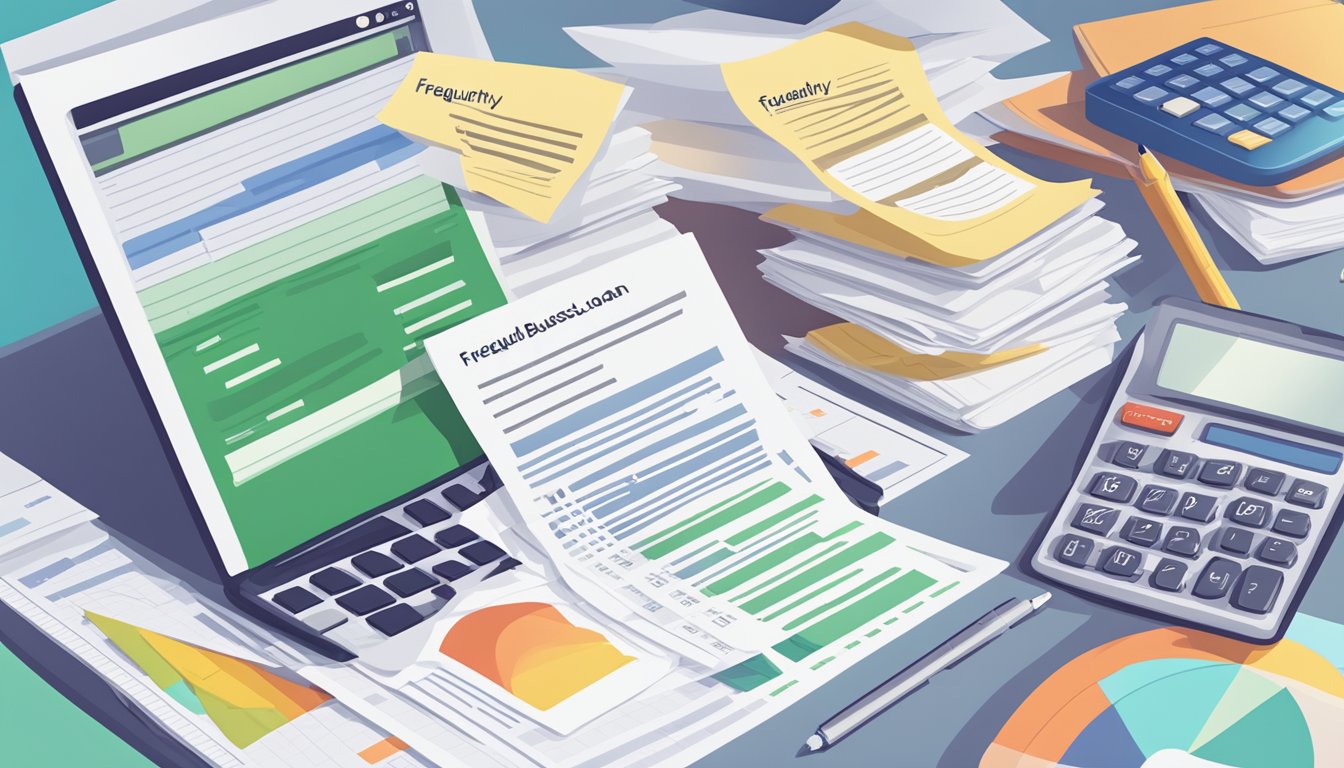
If you’re a small business owner in Singapore, you may be considering taking out a loan to help grow your business. However, with so many different financing options available, it can be difficult to know where to start. Understanding the criteria for small business loans can help you navigate the process and make an informed decision.
Understanding Small Business Loan Criteria
One of the first things to consider when applying for a small business loan is the eligibility criteria. Most lenders will require you to have been in business for a certain length of time, typically at least six months to a year. You’ll also need to have a good credit score and a solid business plan that demonstrates your ability to repay the loan.
Navigating Loan Options and Making the Choice
Once you’ve determined that you meet the eligibility criteria, it’s time to start exploring your loan options. There are several different types of small business loans available, including term loans, lines of credit, and government-assisted loans. Each type of loan has its own advantages and disadvantages, so it’s important to carefully consider your needs and choose the option that best fits your business.
Key Takeaways
- Understanding the eligibility criteria is essential when applying for a small business loan.
- There are several different types of small business loans available, each with its own advantages and disadvantages.
- Choosing the right loan for your business requires careful consideration of your needs and goals.
Understanding Small Business Loan Criteria

As a small business owner, you may need to look for financing options to expand your business or manage your cash flow. However, before applying for a loan, it is essential to understand the eligibility criteria and requirements.
Eligibility and Requirements
To qualify for a small business loan, you need to meet certain eligibility criteria, such as having a registered and operating business in Singapore. Additionally, you need to have at least 30% local shareholding, which means Singaporean or Permanent Resident. You will also need to provide financial reports, bank statements, and notice of assessment to the lender.
Types of Business Loans and Financing
There are several types of business loans and financing options available to small business owners in Singapore. These include business term loans, working capital loans, unsecured business loans, government-assisted loans, invoice financing, and commercial property loans. Each loan has its own set of requirements, interest rates, loan tenures, and fees.
Loan Application Essentials
When applying for a loan, you need to submit a loan proposal and a business plan that outlines how you plan to use the funds. Additionally, you will need to provide your annual revenue, credit score, and financial history to the lender. Some loans may also require collateral or a personal guarantee.
Overall, understanding the small business loan criteria is crucial before applying for a loan. By meeting the eligibility criteria, selecting the right type of loan, and submitting a comprehensive loan application, you can increase your chances of approval and secure the financing you need to grow your business.
Navigating Loan Options and Making the Choice

Small businesses are the backbone of the economy, but they often require financial assistance to get off the ground or to expand. SME loans are a popular financing option for small businesses, but with so many loan options available, it can be challenging to know which one to choose. Here are some tips to help you navigate loan options and make the best decision for your business.
Comparing Loan Features and Interest Rates
When comparing loan options, it is essential to consider the features and interest rates of each loan. Some loans, such as the SME Working Capital Loan, are designed to help businesses with short-term working capital needs. Other loans, such as the Enterprise Financing Scheme, are designed to help businesses with longer-term fixed asset purchases.
Interest rates can be fixed or floating, and it is essential to understand the difference. A fixed interest rate stays the same throughout the loan term, while a floating interest rate fluctuates with market conditions. It is worth considering which type of interest rate is best for your business.
To help you compare loan options, consider creating a table that lists the features and interest rates of each loan. This can help you make an informed decision about which loan is best for your business.
The Application Journey
Once you have decided which loan is best for your business, it is time to apply. Many banks, such as DBS and UOB, offer online applications, making the process quick and easy.
When applying for a loan, you will need to provide details about your business, such as its financial history and future plans. It is worth taking the time to prepare these details before starting the application process.
After submitting your application, the bank will review it and decide whether to approve your loan. This process can take a few days to a few weeks, depending on the loan and the bank.
In conclusion, choosing the right SME loan for your business can be challenging, but by comparing loan features and interest rates and understanding the application process, you can make an informed decision. Remember to take the time to prepare your application and to consider all the loan options available to you. With the right loan, your business can thrive and grow.
Frequently Asked Questions

What documents do I need to secure a loan for my exciting new venture?
When applying for a small business loan, you will need to provide some essential documents. These include your business plan, financial statements, tax returns, bank statements, and proof of ownership. You may also need to provide collateral to secure your loan.
How can you boost your chances of approval when applying for a fresh business loan?
To increase your chances of securing a small business loan, you should ensure that your business plan is well-detailed and comprehensive. You should also have a good credit score and a solid financial track record. Additionally, it’s crucial to have a clear understanding of the lender’s requirements and tailor your application to meet them.
What are the typical interest rates for an invigorating SME business loan?
The interest rates for SME business loans vary depending on the lender and the loan amount. However, typical interest rates for small business loans range from 7% to 15% per annum.
Could you tell me the exhilarating details of collateral requirements for small business loans?
Collateral is an asset that you pledge to secure your small business loan. The collateral requirements for small business loans vary depending on the lender and the loan amount. However, typical collateral requirements include real estate, equipment, or inventory.
What exciting financial metrics are crucial for securing a business loan?
When applying for a small business loan, lenders will look at several financial metrics, including your cash flow, revenue, debt-to-equity ratio, and profitability. These metrics help lenders determine your ability to repay the loan.
How quickly can you obtain a thrilling small business loan after application?
The time it takes to obtain a small business loan varies depending on the lender and the loan amount. However, most lenders can process your application within a few days to a week. If your application is approved, you can expect to receive your funds within a few business days.
By providing the necessary documents, understanding the lender’s requirements, and having a solid financial track record, you can increase your chances of securing a small business loan. With the right preparation, you can obtain the funding you need to grow your business and achieve your goals.




